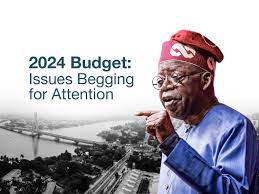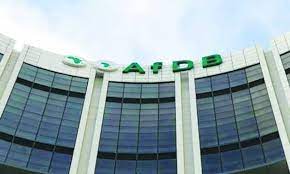The increase in capital expenditure to N10 trillion by the Tinubu led government has been applauded by financial analysts, saying it is a foundation for development.
Precisely, the National Assembly (NASS) raised allocation for capital expenditure by 14.9 per cent to N10.0 trillion while recurrent spending was trimmed by 11.7 per cent to N8.8 trillion. Also, the sums of N8.3 trillion and N1.7 trillion were approved for debt servicing and Statutory transfers respectively.
Capital expenditure are monies spent on projects, particularly infrastructure, which will in turn replicate in development and job creation, amongst others.
But recurrent expenditure is mostly used in paying salaries and seen and unseen allowances.
The 2024 budget was raised to N28.8 trillion 2024 fiscal plan, signed into law by President Bola Ahmed Tinubu last week. The initial budget of N27.5 trillion was raised by N1.2 trillion by the National Assembly (NASS) following revisions to revenue expectations and re-prioritisation of spending focus in favour of capital projects.
Analysts say this is one of the rare occasions where the country is having its capital expenditure exceed recurrent expenditure.
Seun Gbadedo, a stock broker, said, as good as the budget, implementation remains a major test to the sincerity of the budget intentions.
He however applauded the move in the first place and wished the government a successful implementation.
Analysts at Afrinvest agree that the increased capital expenditure is good for the economy, but disagree on government’ assumptions.
“While we applaud the recalibration of the budget mix to increase capital budget allocation, we maintain our view that revenue assumptions, especially crude oil revenue forecasts, are overly bullish as noted in the macro section of our recently published 2024 outlook report. In a blue sky scenario, our model suggests that the Naira should trade around N911.29/$ – weaker than FG’s projection and positive for Naira earnings from oil sales.
“Albeit, we expect downward pressure on global oil price and domestic crude output to derail budgeted oil revenue in 2024. Also, our model suggests that the budget deficit should exceed N13.0 trillion (budgeted: N9.3 trillion), while annual GDP growth should print at about 3.0 per cent in a base case as against FG’s 3.8 per cent projection. We opine that cost-cutting initiatives, full implementation of capex, and fiscal discipline to rein-in on rising debt are sustainable ways to enhance the impact of budget on economic growth”, said Afrinvest.
On the revenue side, government’s changes to the budget assumptions include adjustment of exchange rate and real Gross Domestic Product (GDP) growth to N800.00/$ and 3.9 per cent respectively against the initial outlook of N750.00/$ and 3.8 per cent. Meanwhile, oil revenue assumptions of $77.96/bbl price and 1.78mbpd production were left intact. Based on the revision, the Federal Government estimates the full year 2024 budget deficit at 3.9 per cent of GDP.
In other developments, Afrinvest spotlights the dismal performance of capital importation in Q3:2023 and its implication for outlook.




